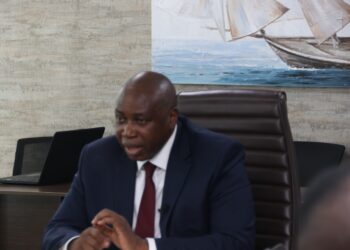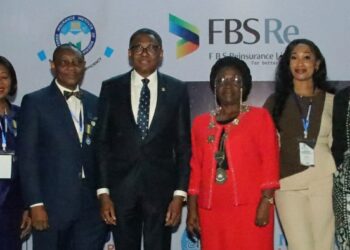Global financial reporting has been moving towards a transparent and and seemingly unified reporting of business transactions and this has its roots in the financial reporting malfeasants that has led to collapse of global financial corporations like Bearings and US energy company Enron. From the ashes of these companies and many more compelled global financial juggernauts to develop an International Financial Reporting Standard that is driven by transparency and disclosures of financial transactions.
In the wake of this, several standards have been compiled, each assigned the figure representing the year it was adopted for nations to study and adopt as their financial reporting model. The announcement of a succeeding IFRS standard is a marked improvement of higher level of disclosure and transparency leaving no hiding place for financial malfeasant. The insurance industry in Nigeria started with IFRS 4 and this was succeeded by IFRS 17 that placed unalloyed emphasis on disclosures and transparency of business transactions like never done previously.
In AIICO Insurance Plc one of the Big Four, the integration of IFRS 17 into the company rests on the shoulders of Mr. Moyowa Korede, Project Manager for IFRS 17. Speaking on the global significance on IFRS 17 development, he made it clear that it was “To bring consistency to financial reporting around the globe for companies reporting under IFRS 17, and to compare insurance companies to those operating in other sectors of economy.”
Speaking to members of the Nigerian Association of Insurance and Pension Editors (NAIPE), he said IFRS 17 establishes “closer alignment of the accounting to the underlying economics of insurance.”
Korede admitted that though IFRS is just outside the normal run of financial accounting understanding for many insurance professionals including shareholders, it is helping to unlock, promote and facilitate the transition to transparency and disclosures of business transactions. The learning and integration process he noted has been tasking for AIICO and the company had plunged its corporate resources to fully implement the transition since January this year as requested by the regulator with its first and second quarters financial report based on IFRS 17. He explains further that IFRS 17 is a comprehensive standard applicable to companies that prepare financial statements under IFRS. It replaces IFRS 4, which was not as comprehensive in disclosures. The new standard provides a single global accounting standard for insurance contracts.
Explaining how IFRS 17 addresses the moribund prescriptions in IFRS 4, he said IFRS 4 has a variety of treatments depending on type of contract and company that fell short of current levels of disclosures and global financial reporting consistency. Under IFRS 4, estimates for long-duration contracts were not updated; and discount rate based on estimates does not reflect economic risks; and there was a challenge, where lack of discounting for measurement of some contracts existed and, coupled with this was little information on economic value of embedded options and guarantees
Under IFRS 17 there were improvements, and Korede stated that the new standard provides consistent accounting for all insurance contracts by all companies; estimates updated to reflect current market-based information; discount rate reflects characteristics of the cash flows of the contract; measurement of insurance contract reflects time value where significant and measurement reflects information about full range of possible outcomes.
The balance sheet in IFRS 17, AIICO IFRS Project Manager explained, required a current measurement model, where estimates are re-measured in each reporting period.
The measurement, according to him, is based on the building blocks of discounted probability-weighted cash flows, a risk adjustment, and a contractual service margin (‘CSM’) representing the unearned profit of the contract.
For income statement, requirements in IFRS 17 align the presentation of revenue with other industries. Investment components are excluded from revenue.
Under IFRS 17, entities have an accounting policy choice to recognize the impact of changes in discount rates in profit or loss or in other comprehensive income (‘OCI’) to reduce some volatility in profit or loss.
On disclosures, Korede said, IFRS 17 disclosures will be more detailed than required under current reporting frameworks; disclosures will provide additional insight into key judgements and profit emergence, adding that disclosures are designed to allow greater comparability across entities.








































